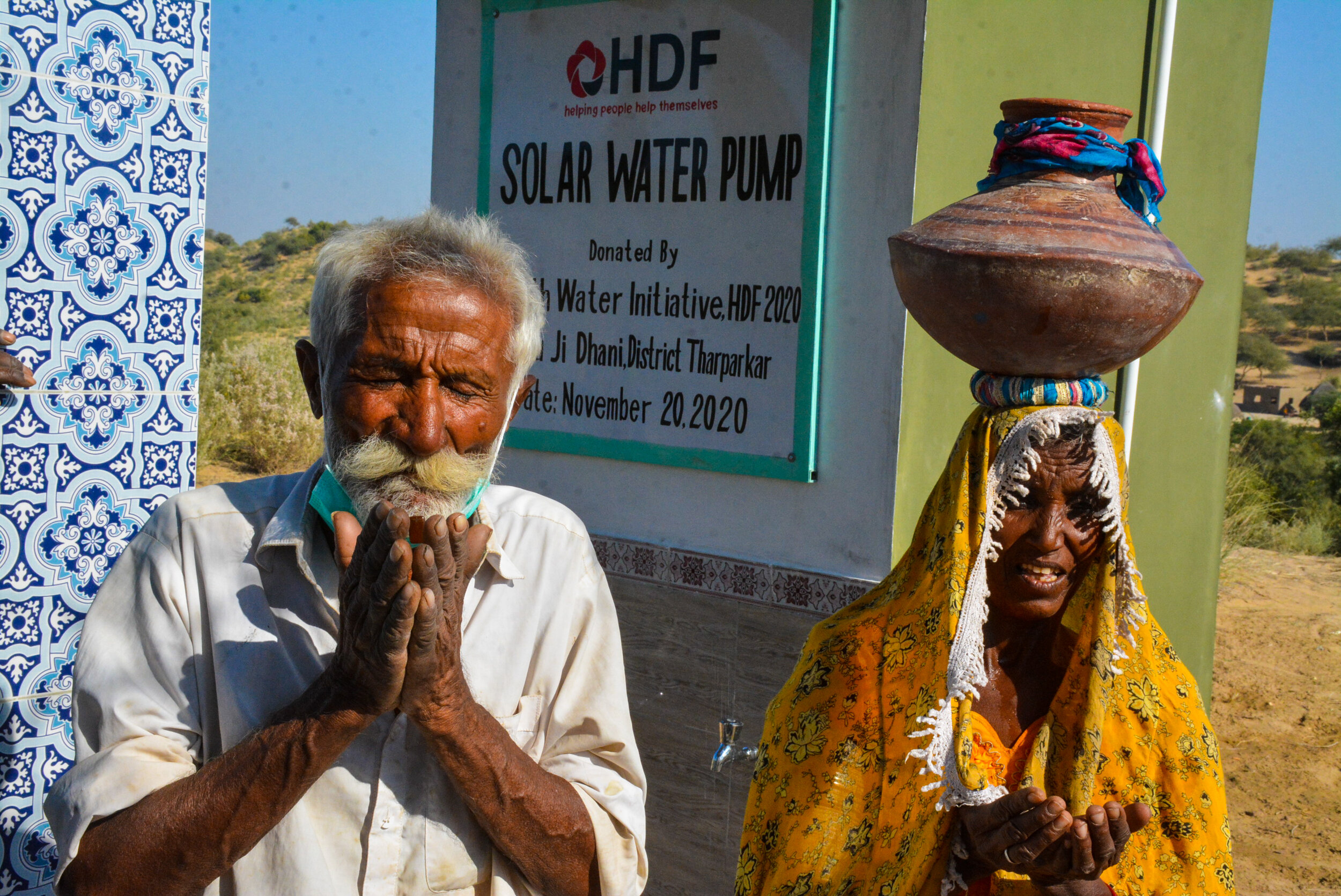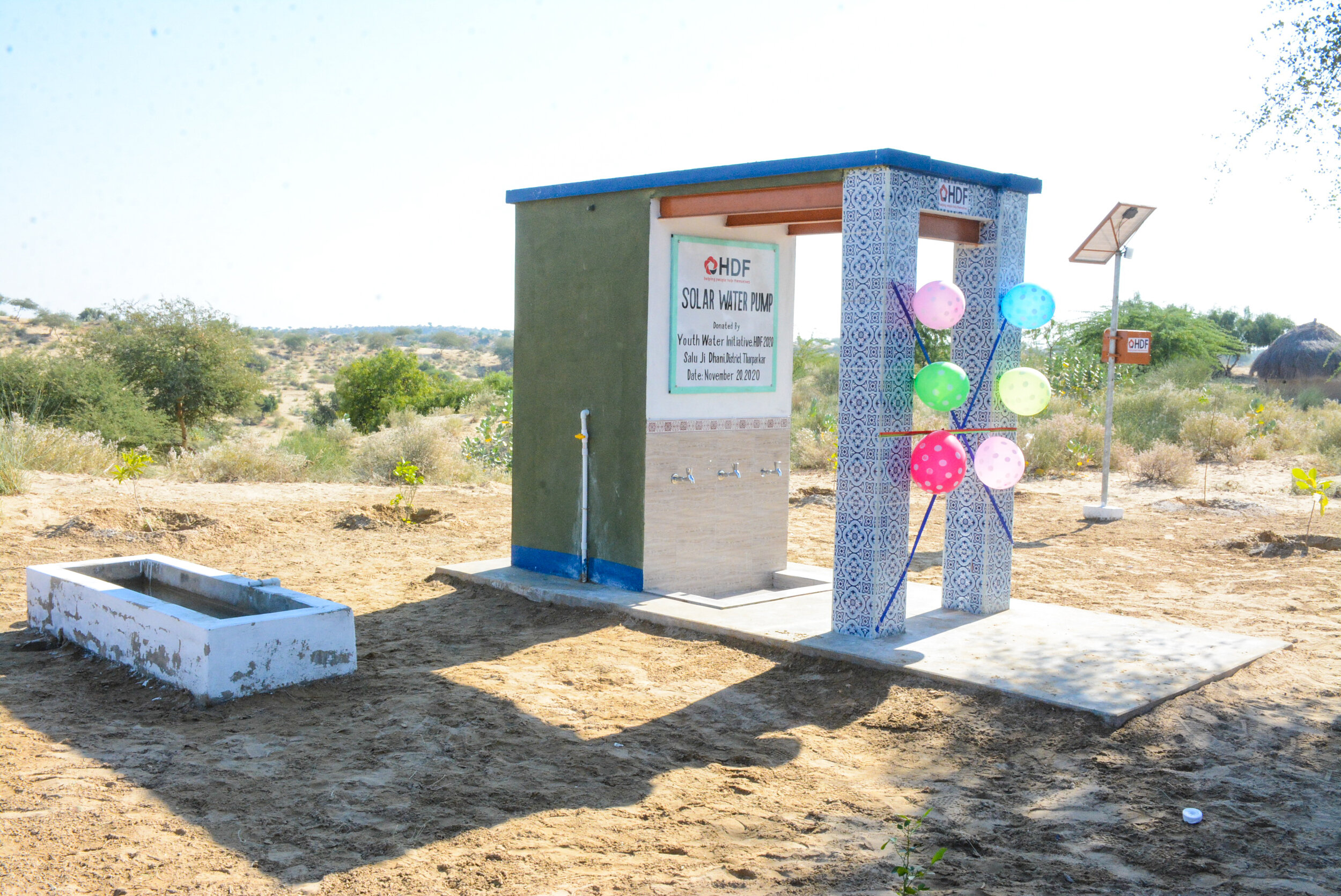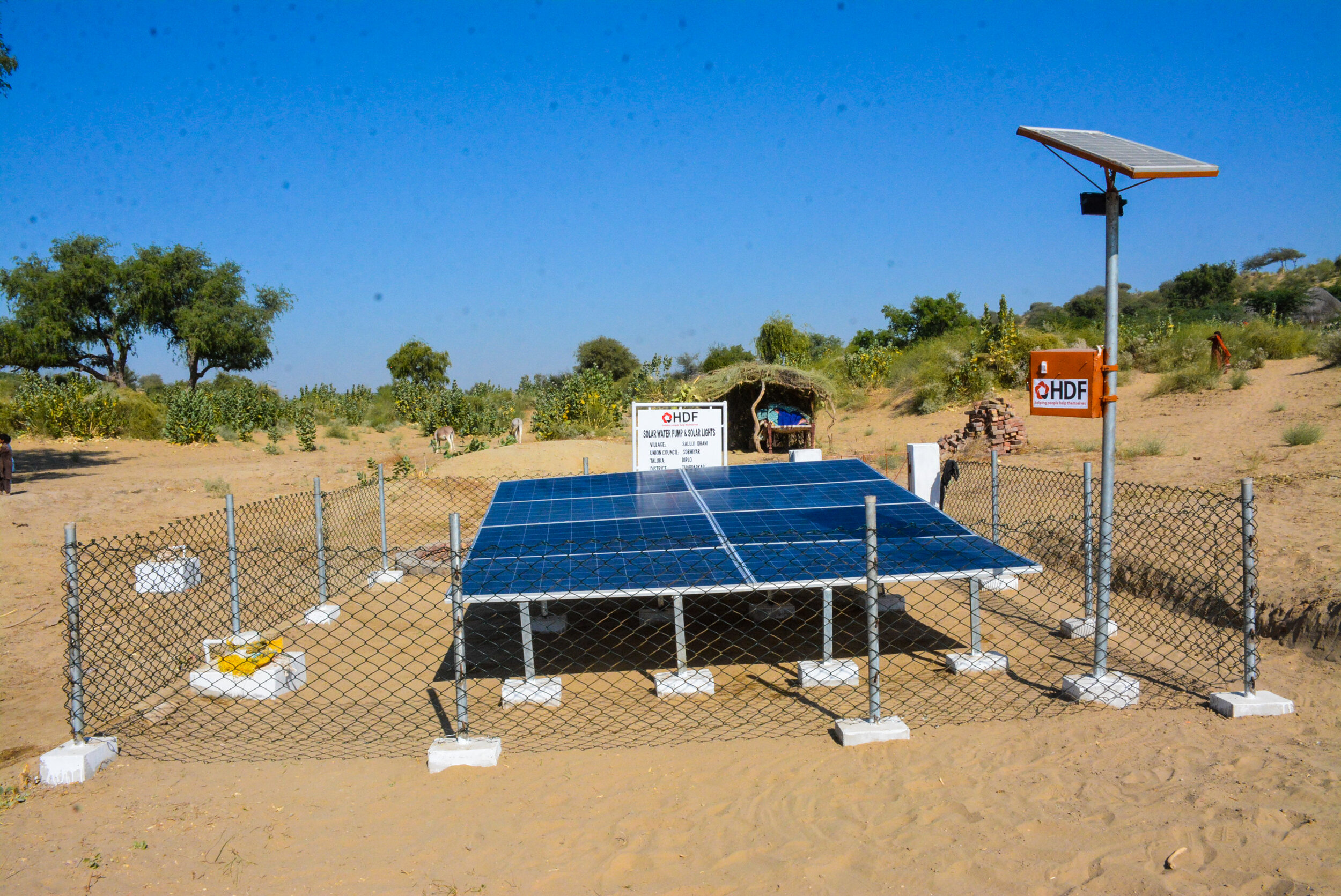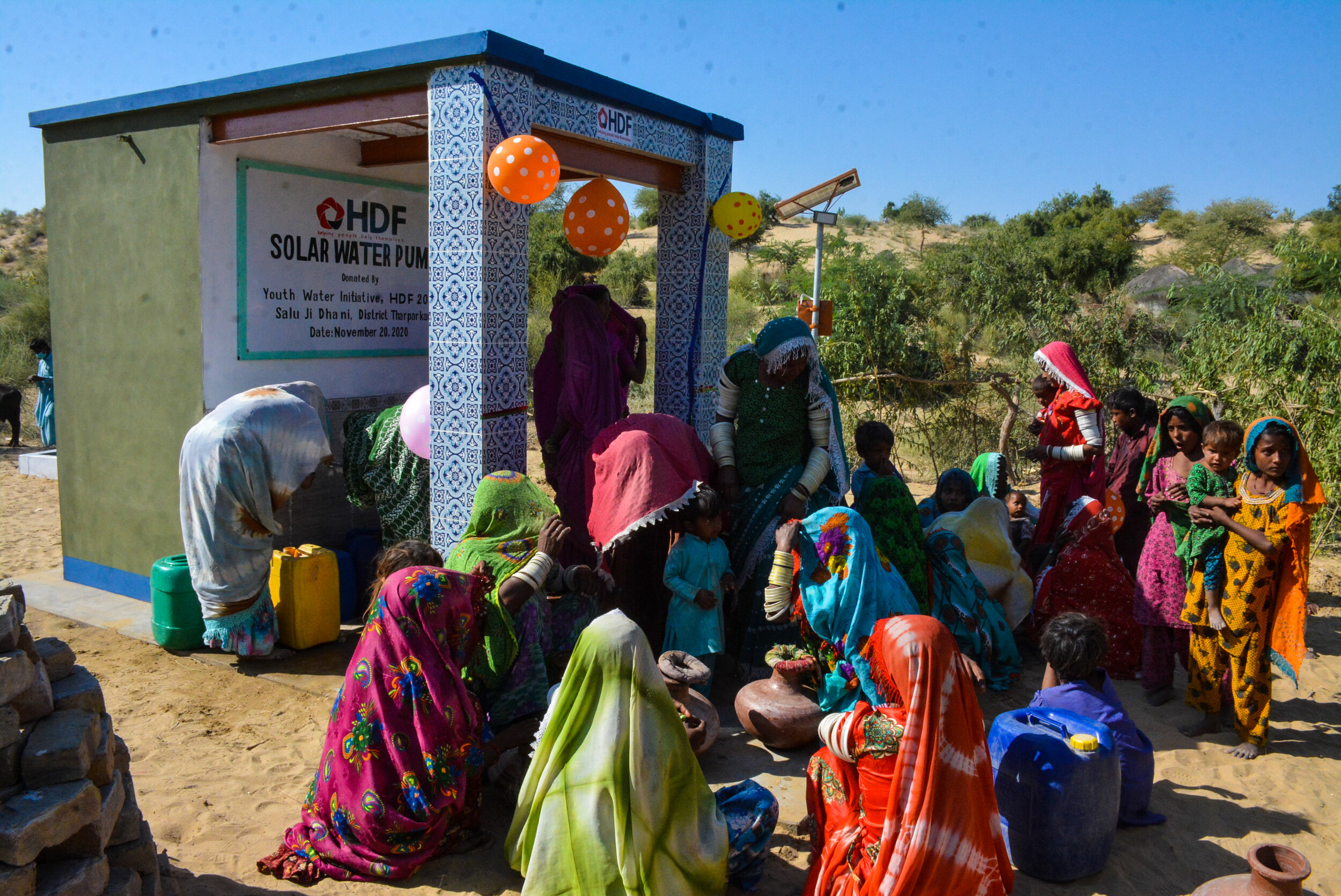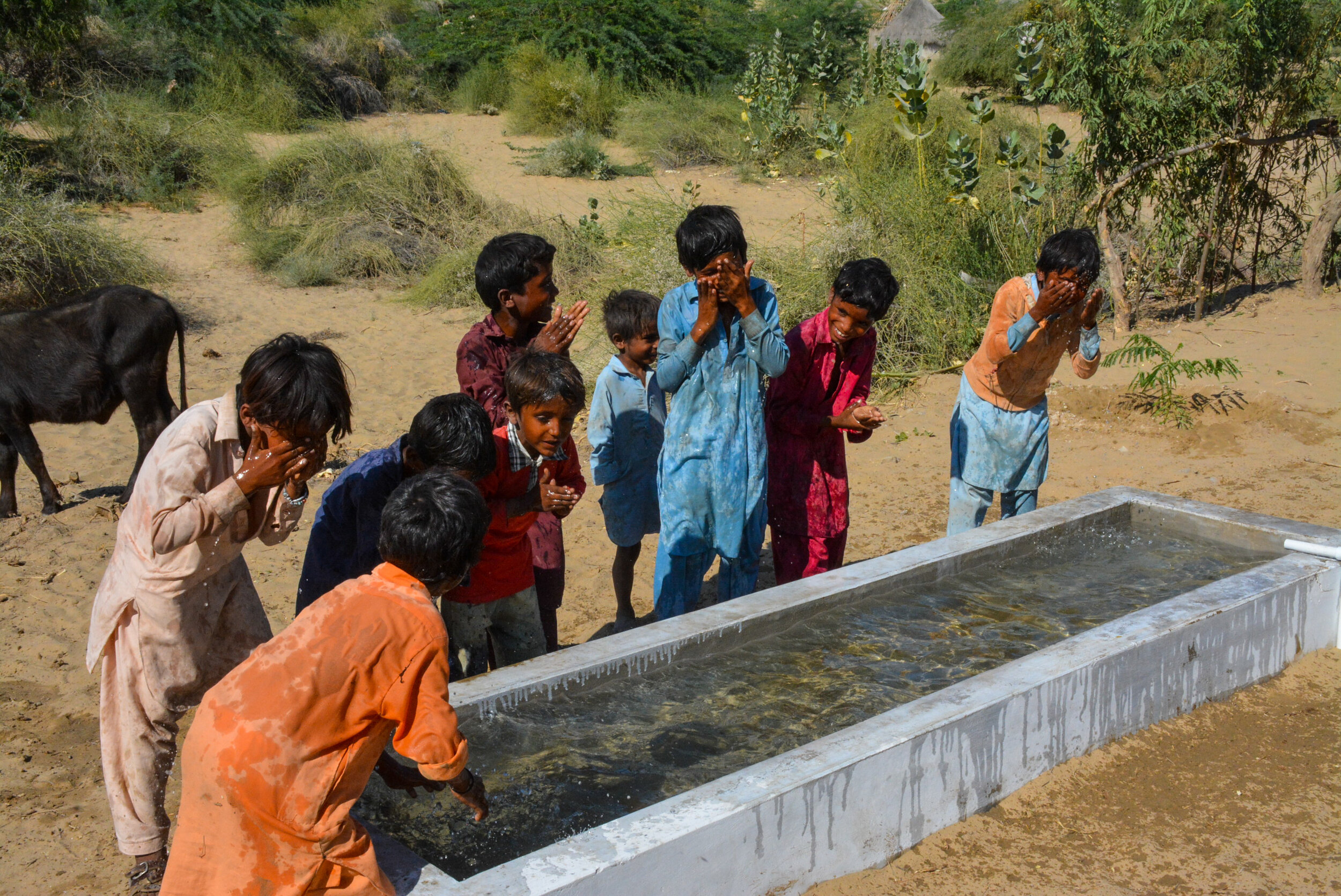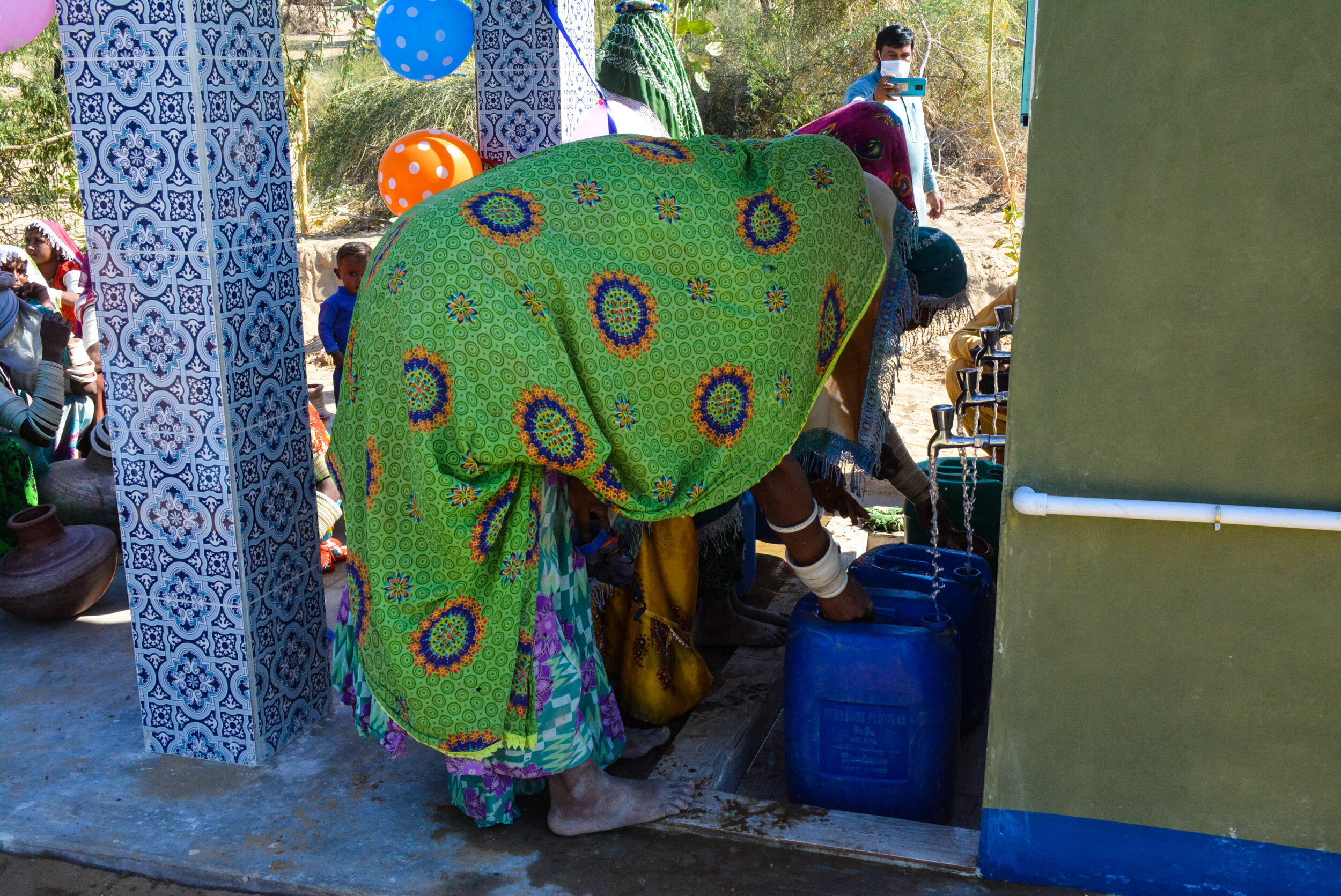PAST CAMPAIGN
Water for Tharparkar
Background
The lack of water infrastructure in Tharparkar forces locals to collect pots of unhygienic water from a ground pump. Most wells that NGOs, villages, and the government have dug dry up due to lack of rainfall or are unsafe for human consumption. Furthermore, years of drought has caused a crisis in the region, ranked one of the lowest on the United Nation’s Human Development Index. In the recent decade, there has been a rise of malnutrition- related clinical admissions and child mortality in the Tharparkar district.
In addition, unclean water causes many diseases - 1.8 million people die every year because of cholera. Because communities that lack clean water are also economically disadvantaged, they do not have the means necessary to escape poverty. Before the installation of the water filtration plant, the villagers had to make multiple trips a day to collect water 3-5 kilometers away, which has a huge impact on their quality of life. Since they no longer have to walk hours for water, women and girls in particular have more free time to pursue jobs and education.
The Problem
The village selected for our first project was the village of Saluji Dhani. It’s a remote village located miles off any road in the Thar Desert. Until now, the people of Saluji Dhani got water primarily through a hand-operated water well several minutes from their main town centre— carrying water jugs to and from the well to their village. This takes on average a single person, around 6 hours a day to fetch 40 to 50 litres of water. For comparison, the average American uses 80—100 gallons of water per day. That’s over 6x more water daily.
Our Contribution
In the Summer of 2019, the Youth Water Initiative was founded on the basis of the droughts occurring across Sindh, Pakistan. We began by forming a team to search for sustainable solutions to the crisis and began working with the Human Development Foundation. Throughout the latter half of 2019 and 2020, we hosted virtual peer to peer campaigns and even planned for a coffee shop concert fundraising event, which was cancelled due to COVID-19 safety concerns, and surpassed our initial goal of $8,000 (USD) and were successful in building a solar water pump, solar station, and 4 solar lamps throughout the village, far surpassing our initial expectations.
The Process
Once we raised the funds, we contracted out the work to the HDF Village Development Organization (VDO). Work began by digging a 150 ft borehole into the ground and installing the solar-powered water pump at the bottom.
Once installed, a quality test of the water in the borehole was performed by the VDO. From there they constructed the rest of the building as well as running pipelines to an external storage tank so large quantities of water could be stored.
Crucially important as well, was the appointment and subsequent training of a point person in the village who would be able to perform light maintenance and repairs to the pump so it could stay in use for years to come.
Our Impact
The installation helped the farmers stay afloat through the pandemic and the drought occurring in the region. In addition, the women of Salu Ji Dhani no longer have to spend 2-3 hours for each trip to retrieve clean water, curing an issue that faces many villages across the Sindh.
The pump is now providing clean water to 50 households in the village, 103 male adults, 124 female adults, 82 boys, 91 girls, and 106 animals. Easier access to clean water has also given children, especially girls the ability to attend school for the first time in their life. With our extra funds, we were able to install solar lamps throughout the village.





